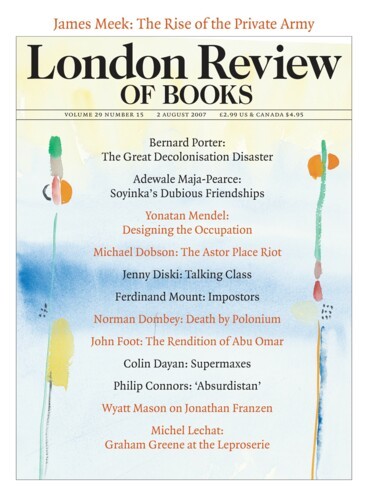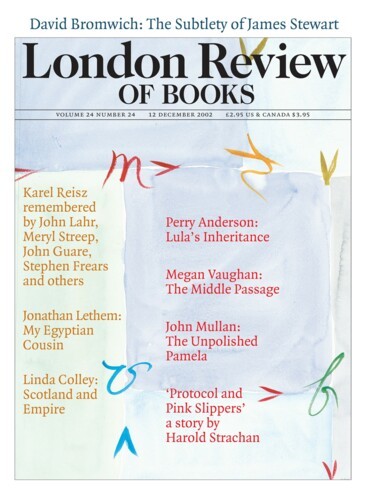I have never made a secret of my distaste for Muhammadu Buhari – ‘the least awful option’, according to the Economist – and I am not doing so now that he has been declared winner of the presidential election in Nigeria. One of the more notorious dictators during the long years of the military, he now claims to be a born-again democrat. Perhaps so. All will be revealed after he moves into Aso Rock on 29 May, with the proviso that he will be obliged to work within the terms of a constitution he cannot abrogate by decree.
Adéwálé Májà-Pearce
Adéwálé Májà-Pearce’s This Fiction Called Nigeria is forthcoming from Verso.
There is much talk here in Nigeria of the world’s muted response to the latest outrage by the Boko Haram Islamic insurgents who sacked the entire town of Baga in the beleaguered north-east while any number of heads of state gathered in Paris to mourn the deaths of 17 French citizens. Double standards? Perhaps. But if so, what should we say about the silence of President Goodluck Jonathan in the face of the wholesale slaughter of his citizens – 2000 according to initial reports; 150 according to the government – even as his French counterpart was to be seen everywhere exhorting his people to stand firm? Nine months ago, when Boko Haram abducted more than 200 schoolgirls, it took the president nearly three weeks to acknowledge that anything had happened. Nobody knows what Boko Haram want and perhaps they don’t know themselves. We only know what they don’t want, most famously ‘Western’ education.
Were 276 girls abducted from a government secondary school in the town of Chibok in north-eastern Nigeria on 14 April? That anyone could ask the question, as the president’s wife allegedly did last weekend, says much about the mess we’re in. It took the president more than two weeks to call a press conference to tell the world: ‘I don’t know where they are
Our Credulous Grammarian: Soyinka’s Dubious Friendships
Adewale Maja-Pearce, 2 August 2007
Towards the end of this, his third volume of memoirs, which covers the period from independence in 1960 to the death of General Sani Abacha in 1998, the 64-year-old Wole Soyinka is preparing to infiltrate himself back into his native Nigeria to confront the latest manifestation of military adventurism. By 1998 he had been in exile for three years and was impatient with the failure of the
Diary: in Northern Nigeria
Adewale Maja-Pearce, 12 December 2002
The rioting in the Northern, predominantly Muslim city of Kaduna that forced the organisers to withdraw the Miss World competition has brought into question once again the viability of the project called Nigeria. The riots themselves were triggered by a newspaper article suggesting that the Prophet Muhammad would have approved of the presence of the beauty queens, and perhaps chosen a wife or
Pieces about Adéwálé Májà-Pearce in the LRB
Kinsfolk
D.A.N. Jones, 12 July 1990
Men who get their memoirs published are generally confident enough to report, gleefully, their victories over particular opponents, and to try to explain any defeats. There is another sort of
Read anywhere with the London Review of Books app, available now from the App Store for Apple devices, Google Play for Android devices and Amazon for your Kindle Fire.
Sign up to our newsletter
For highlights from the latest issue, our archive and the blog, as well as news, events and exclusive promotions.



